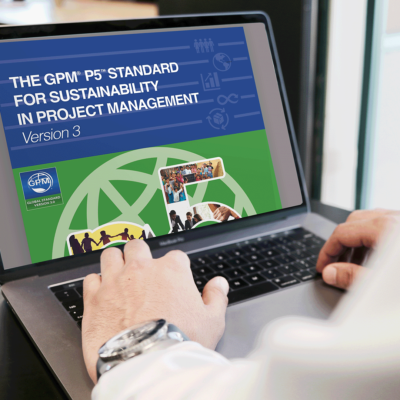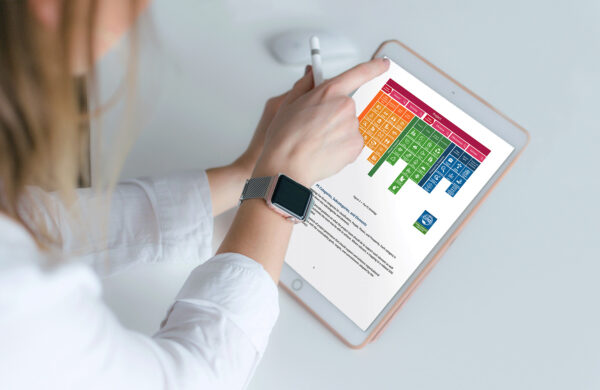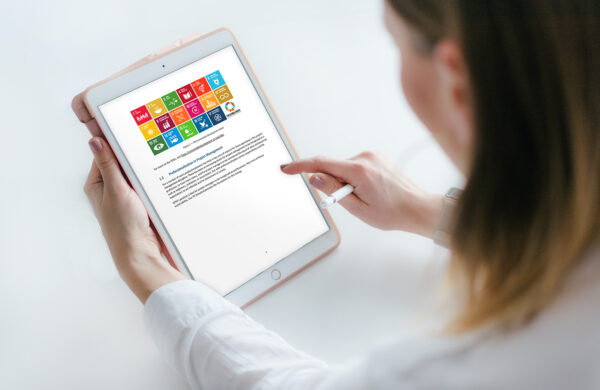P5 is a tool that determines the impact on the sustainable development of the project process and the project product.
 P5 provides a measurable framework for portfolios, programs, and projects that are relevant to sustainability reporting. P5 is also a bridge between projects and sustainable development, enabling understanding of projects’ impact on achieving the United Nations Sustainable Development Goals.
P5 provides a measurable framework for portfolios, programs, and projects that are relevant to sustainability reporting. P5 is also a bridge between projects and sustainable development, enabling understanding of projects’ impact on achieving the United Nations Sustainable Development Goals.
The document was developed to guide how, and why, it is worth implementing sustainable practices in projects carried out in companies and organizations. The criteria presented in it, help implement changes leading to the implementation of projects in a sustainable manner, while considering the environmental and social impacts. Therefore, the P5 Standard is called the bridge between organizations and government leaders signing international treaties with the institutions tasked with implementing these agreements.
The tools and solutions provided by P5 Standard take into account three dimensions of integration:
- The social dimension of sustainable development concerns primarily the impact of projects on people, society, and communities. The proposed activities focus on human rights, ethical behavior, equality, and maintaining mutually beneficial relations with employees, clients, and the local community.
- The area of sustainable development related to the environment concerns the impact on all-natural areas inhabited by flora and fauna and people. Therefore, the document includes solutions for a number of sustainable development elements related to transport, energy, water, and resource consumption.
- The guidance related to the financial dimension focuses on economic costs, business benefits, portfolio, program, and project risks. Particular attention was paid to indicators such as return on investment (ROI), business flexibility, economic prosperity, and economic stimulation.
What are the effects of implementing the P5 Standard?
- The implementation is performed at the project initiation stage following the PRiSM™ methodology.
- Implementation consists of analyzing the impact of the project assumptions on the environment, society, and economy. At the same time, compliance with the organization’s strategy should be checked.
- The analysis is also aimed at identifying threats and opportunities resulting from applying the principles of sustainable development.
- The result of the analysis allows for identifying problem areas from the perspective of sustainable development. As a result, it provides practical information as the basis for justifying changes to the project.
- Conclusions from the analysis are essential for Project Managers to assess whether the implemented scope of the project meets the principles of sustainable development.
- The last stage is to change the scope and method of carrying out the project to take into account the principles of sustainable development.
Download P5 Standard


